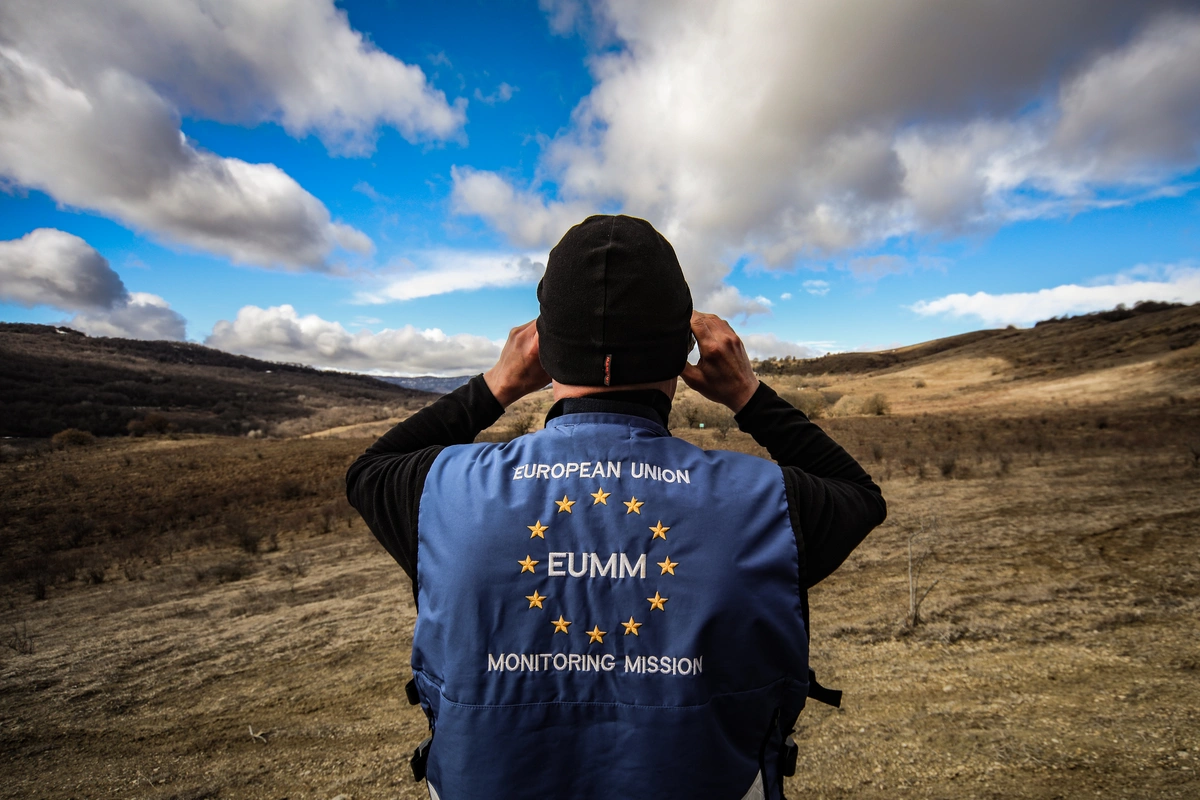
Photo: eeas.europa.eu
Since the war in 2008, the EU Monitoring Mission (EUMM) has been the only remaining civilian monitoring mission in Georgia and is a key stabilising force in the region - and the EU just prolonged the mission for another two years in December 2024, The Caspian Post reports citing EU Observer.
However, the disputed parliamentary elections and the government's increasingly authoritarian and anti-European stance could pose new challenges for the mission.
As in the countries of the Sahel, there may be fundamental questions about how a Common Security and Defence Policy (CSDP) mission should work with a government that is increasingly hostile towards the EU.
The Georgian Dream government could even revoke the mission's invitation if relations with the EU further deteriorate.
But the EUMM's de-escalation tools, such as the Incident Prevention and Response Mechanism (IPRM) and the hotline between Georgia, its regions Abkhazia and South Ossetia, and Russia, remain vital - for both the Georgian government and the EU.
The EUMM was established in 2008 to act as a civilian observer mission in the intra-Georgian conflict between the core country and the breakaway territories and Russia. Its task is to monitor the implementation of the EU-brokered six-point agreement that ended the August 2008 war.
As a result of the conflict, Georgia lost control over the last areas still controlled by Tbilisi in the regions that had been breakaway since the early 1990s. Since then, the administrative borders (ABL) to both regions have been controlled by border troops under the control of the Russian domestic intelligence service FSB.
Since October 2008, some 200 EU observers have been on the ground to monitor the ceasefire and stabilize the post-war situation.
24/7 hotline
The mission relies on two key mechanisms: a 24/7 hotline linking Georgian, Abkhazian, South Ossetian and Russian security actors and allowing for immediate communication of all conflict-related incidents.
There are also IPRMs (Indident Prevention and Response Mechanisms) in Ergneti and Gali. The former involves Georgian, Russian and South Ossetian de facto authorities and is co-moderated by the EUMM and the OSCE.
Meanwhile, the IPRM on Abkhazia, which included Georgian, Russian and Abkhazian representatives, has been suspended by Abkhazia for more than six years.
The parliamentary elections on 26 October, 2024 were the first elections since Georgia was granted EU accession candidate status in December 2023.
The election campaign was characterized by strong polarization between the government and the pro-European opposition as well as president Salome Zurabishvili.
The Georgian Dream party, which has been in power since 2012, pursues an authoritarian course and staged the elections as a decision between “peace and war”.
There were numerous irregularities on election day. National and international observers, including the OSCE observation mission, pointed to overcrowding at polling stations, intimidation of voters and local election observers, violations of the secret ballot and several incidents of physical altercations outside polling stations.
At the occasion of the publishing of the final report of the OSCE’s election observation mission on 20 December 2024, the head of the EOM stated that there have been many issues identified that “negatively impacted the integrity of these elections and eroded public trust in the process”.
Already on 28 November, the EU Parliament decided by a large majority not to recognize the parliamentary elections and to call for internationally supervised new elections.
On 16 December, the EU announced individual sanctions against Georgian officials in response.
Abkhazia and South Ossetia - two frozen conflicts heating up
So far, these events have had no visible impact on relations between Georgia and its breakaway regions of Abkhazia and South Ossetia.
Although two further rounds of Geneva international discussions have recently been held between Tbilisi, Moscow and the de facto governments in Sukhumi and Tskhinvali, these have merely revolved around the already known deadlocked positions of all parties.
South Ossetia is consistently pursuing a policy of self-isolation vis-à-vis Georgia and the international community.
At the same time, Russia is strengthening its strategy of expanding its influence in the region.
Since 2008, at least 30 military bases have reportedly been established by Russian border guards and security forces, and arrests and violence at the ABL and discrimination against ethnic Georgians continue.
Abkhazia has long relied heavily on Russian financial aid but following massive protests against an investment deal with Russia and the subsequent ousting of the Abkhazian president, Russia has withdrawn its support.
This has affected the salaries of the Abkhazian people, as well as increasing the cost of electricity. In response to the growing crisis, the EU is now considering ways to ensure energy security in the region through Georgia, which could also work as a confidence-building measure for Georgia and Abkhazia.
Even if the mission's mandate is not directly related to domestic issues, the extension until the end of 2026 and the continued work of the EUMM will also make an important contribution to the stabilisation of Georgia.
Although the Georgian Dream party is seen as EU-sceptic, it is not pro-Russia. Thus, a withdrawal of the EUMM cannot be in its interest.
However, such a development, i.e. the withdrawal of the Georgian invitation for the mission, cannot be ruled out if the escalation between the Georgian government and the EU continues.
A closing of EUMM would have unforeseeable consequences for the stability of the region and could - without the de-escalation instruments of the EUMM still available - lead to serious incidents on the administrative border with the two breakaway regions.
The continued presence of the EUMM in Georgia is also of strategic interest to the EU, inter alia for monitoring Russian activities in these regions and in the Black Sea. The EU should therefore protect the EUMM as much as possible from the current disputes with the Georgian Dream.
Share on social media